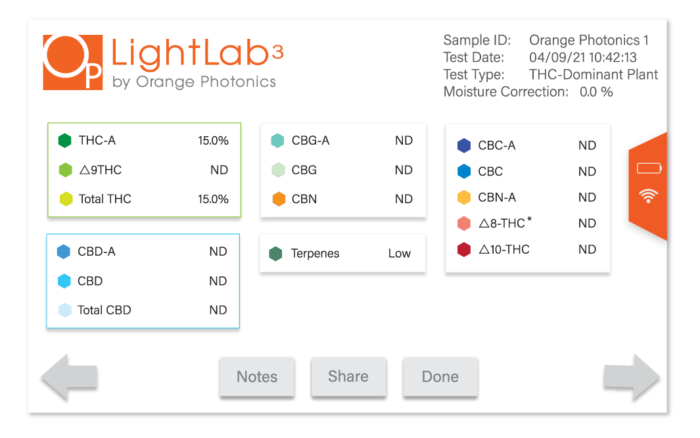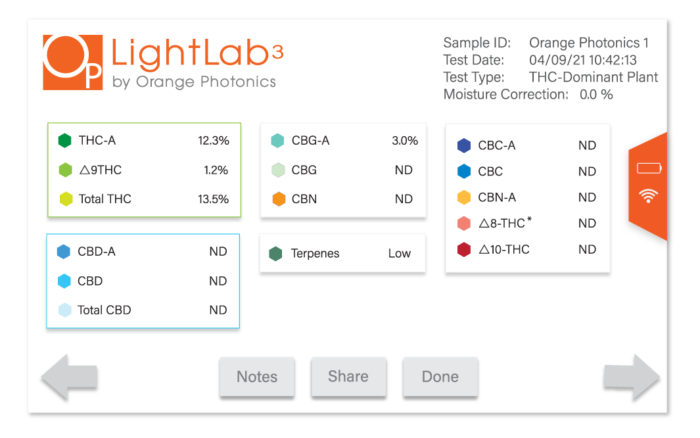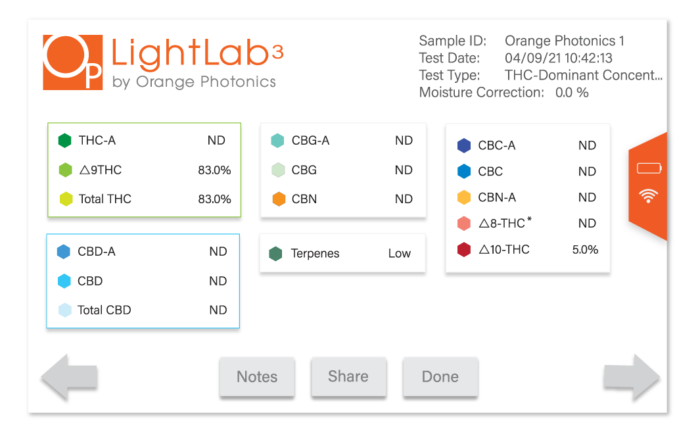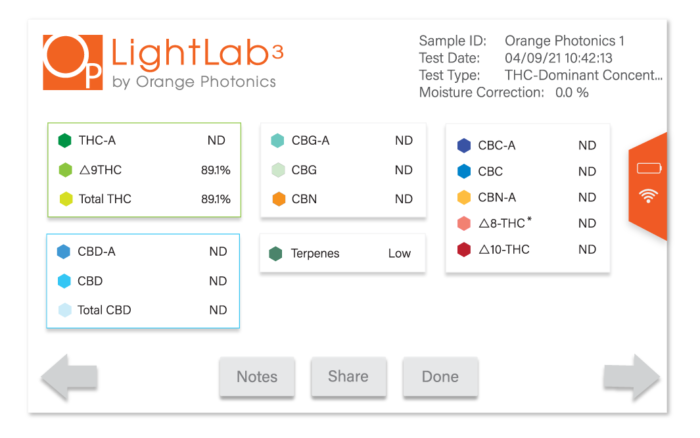By Jill Carreiro, VP of Sales
In the rapidly evolving world of cannabis extraction, there exists a wide spectrum of philosophies on ideal methods and best practices. Oftentimes, instinct and varied experiences drive decision-making. Without access to accurate and affordable analytical tools, extraction specialists had limited opportunity to make data-driven conclusions real-time.
The Solution
LightLab 3 Cannabis Analyzer can be used throughout the extraction process to gain valuable information on the cannabinoid profile of a wide variety of materials and byproducts. When used for pre-extraction and post-extraction analysis, LightLab provides real-time data to help optimize end products, achieve quality goals, improve operations, and support commercial success.
Given the variable nature of many cannabis extraction processes, specialists quickly apply LightLab to this endeavor by testing biomass, spent matter (raffinate) and concentrated products at key checkpoints. In this short application note, we’ll explore a few examples along the multiple phases of a typical CO2 extraction of cannabis biomass.
Low-hanging Fruit
A knowledge gap in many operations stems from a lack of data on transferred materials. In most areas across the United States, lab test results are based on flower sample analysis, very rarely representing the actual cannabinoid profile or potency of the material used for extraction. By testing the inbound biomass prior to loading the vessel, we have a fundamental baseline that can have significant impacts to process variables.
Take the following two examples of “ideal” and “questionable” purchased biomass lots:
In the example results in Figure A, the cannabinoid levels have been confirmed to be in an acceptable range, with no undesired degradation components detected. In contrast, the example in Figure B was rejected due to the identification of an unacceptable level of CBG-A, which is often present if the source material has been harvested prematurely; this would be further emphasized through concentration.
Similarly, an unexpectedly high level of CBN may signify improper storage of the material and your buyers may choose to forgo purchase. Additionally, it is important to note the potential value of performing multiple checks on individual containers, or at multiple locations within large containers to prevent substandard mixed-lots or counterfeiting.
Organic Extension – Process Monitoring
With baseline potencies regularly monitored, the next application of LightLab for the extractor is to monitor quality and potency of extracted products against an established baseline quality standard. The goal here is to maintain in-house visibility to quality and output prior to submission for regulated lab tests. This gives the operation flexibility to optimize processes and develop new products freely, without high overhead testing costs or the concerns that come with misrepresentative lab results.
Below is a simple (and relatively common) example of where one mindful extraction technician was able to identify a vacuum leak in their site’s system due to the abnormally elevated D10-THC levels in their distillate:
Achieving a Whole-Business Perspective
In this highly competitive space, the need to maximize output may at times feel at odds with maintaining high quality standards. By using LightLab, intuitive extractors are quick to understand the true effect of basic process controls such as time, temperature, solvent flow rate, and pressure. Commonplace in other industries, process-tracking analytical practices (measuring the input and output against controlled variables) allows for better operational decision making and more informed purchases, partnerships, and diversions.
As processes are optimized for both quality and overall throughput, it is imperative that forward-thinking organizations apply modern quality strategies applied by highly regulated industries like pharmaceutical and food manufacturing. Spot-tests, batch quality screening and at-line formulation checks using lab-analogous portable technologies is a readily utilized technique, and LightLab 3 Cannabis Analyzer serves the same role for the cannabis industry as a purpose-built High Performance Liquid Chromatograph.





